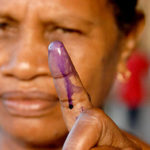This report updates on an earlier report on the same topic. It confirms that donor action on women’s employment and entrepreneurship has been limited or very recent in ASEAN countries. The ILO is the major aid entity involved. Other major ones include the Asian Development Bank, UN Women and the International Finance Corporation. Limitations and gaps in the literature are ...» more
Tax reform
Tax reform can reduce tax evasion and avoidance, and allow for more efficient and fair tax collection that can finance public goods and services. It can make revenue levels more sustainable, and can promote future independence from foreign aid and natural resource revenues. There is increasing recognition of taxation’s role in state-building, in addition to greater ...» more
The multilateral system’s contribution to peace and security
The literature broadly suggests that: As a result of the increasingly complex conflict environments, individual actors are unable to achieve goals on peace and security by themselves. More joint operations are occurring in order to overcome the challenges posed by complex conflict environments, with joint multilateral action seen to promote more effective and efficient ...» more
Political economy analysis
Political economy analysis (PEA) aims to situate development interventions within an understanding of the prevailing political and economic processes in society – specifically, the incentives, relationships, and distribution and contestation of power between different groups and individuals. Such an analysis can support more politically feasible and therefore more effective ...» more
Links between women’s empowerment (or lack of) and outbreaks of violent conflict
A number of studies quantitatively find a strong correlation between levels of gender inequality and conflict. They find that gender inequality increases the likelihood that a state will have internal conflict and international disputes. There is substantial evidence that traditional patriarchal gender identities lead to militaristic and violent conflict approaches. Women ...» more
Political systems
Political systems are the formal and informal political processes by which decisions are made concerning the use, production and distribution of resources in any given society. Formal political institutions can determine the process for electing leaders; the roles and responsibilities of the executive and legislature; the organisation of political representation (through ...» more
Capacity building for social protection
Research for this rapid literature review was unable to find specific material on impacts and lessons for supporting sustainable government capacity building of the social protection sector in general. There is, however, general guidance material on social protection, and lessons and impacts from specific programmes and projects. Consequently this report identifies ...» more
Links between gender-based violence and outbreaks of violent conflict
Gender-based violence (GBV) is prevalent in all contexts and countries of the world. There are studies that quantitatively find a strong correlation between levels of structural/institutional GBV (manifested as gender inequality) and conflict (e.g. Caprioli, 2005, etc). They find that gender inequality increases the likelihood that a state will have internal conflict. Countries ...» more
Operational models for politically aware subnational government projects
Research for this report was unable to identify specific literature relating to political awareness for subnational projects, although there is currently research being undertaken on this topic. Consequently, rather than outlining existing operational models, this rapid research report takes a broader focus and identifies approaches and examples that can provide insights into ...» more
Targeting groups at risk of extremism through security and justice programming
Several governments and NGOs are engaged in domestic and foreign 'countering violent extremism' (CVE) programming in the security and justice fields. USAID and the Danish government have been particularly active in this area. CVE activities are often divided into: hard power approaches (military, legislative, policing, infrastructure protection, crisis planning, border ...» more
Social policy
The development of social policy as a discipline is associated with the emergence of welfare states in European countries. This reading guide provides the user with some key texts and narrative. The development of European countries involved the progressive extension of rights, civil rights in the 18th century, political rights in the 19th century, and…» more
Gender in development
Gender inequality matters to development for two reasons. First, it is a justice problem. Ideologies of women’s inferiority are used to justify serious human rights abuses including female infanticide, child marriage, female genital mutilation, sexual violence, and deprivation of equal access to health care, education, property, employment and pay. Second, gender inequality is developmentally inefficient….» more
Gender and humanitarian issues
A wealth of academic research and UN, INGO, NGO and CSO publications document the differences between the needs, capacities and perceptions of women and men and boys and girls on the types of humanitarian assistance needed in a natural or man-made disaster. When these different perspectives are not taken into account interventions are not effective…» more
Humanitarian action
The aim of humanitarian action is to support people affected by conflict and natural disasters – to save lives, alleviate suffering and maintain human dignity during crisis. Humanitarian action can take many forms and has been conceived in many different ways over time. As enshrined in United Nations (UN) Resolution 46/182 (1991), it is associated…» more
Decentralisation and local government
Estimates suggest that decentralisation is being pursued in over 80% of developing countries worldwide. For many people, local government is the part of government that most directly impacts on their lives, particularly via the provision of services like water, sanitation, and primary education and healthcare. Further resources The following resources were included in GSDRC's ...» more
Service delivery
Equitable access to essential public services is vital for human development, inclusive growth, and tackling persistent inequality. This topic guide provides an overview of the best available evidence on inclusive service delivery. It includes lessons from cases where aid has been effective at addressing weak front-line incentives, where services have been delivered in very ...» more
Public service reform
The focus in this Pack is on action: on the public service reform intervention, conceived as an exercise in helping. The readings included in this pack have been chosen to be interesting and fresh rather than comprehensive; that is, to stimulate thinking rather than necessarily to ‘cover all the bases’ in public service reform as…» more
Refugee, IDP and host community radicalisation
Socioeconomic conditions: In some circumstances, poor socioeconomic conditions (e.g. impoverishment, unemployment, lack of access to services and infrastructure, overcrowded living conditions) may make it more likely for refugees/IDPs to become radicalised. However, Lischer (2005) finds instead that there is generally little evidence to support the connection between particular ...» more
Gender-related results in security and justice policy and programming
There is a paucity of evidence that examines the overall impacts of security and justice programming on gender-related results in the two areas of this query. The literature available tends to be donor funded evaluations and policy papers, it tends to be fragmented, and it tends to examine programmes on a case-by-case basis. Security and justice programing is highly context ...» more
Alternative dispute resolution for businesses in developing countries
Dispute resolution mechanisms can be arranged in a continuum. At one end are processes like which are formal, inflexible, and adversarial, and which depend on neutral third parties to decide the outcome of the process, such as litigation in court, where the outcome is decided by a judge. At the other end are increasingly informal, flexible, and consensual processes such as ...» more



